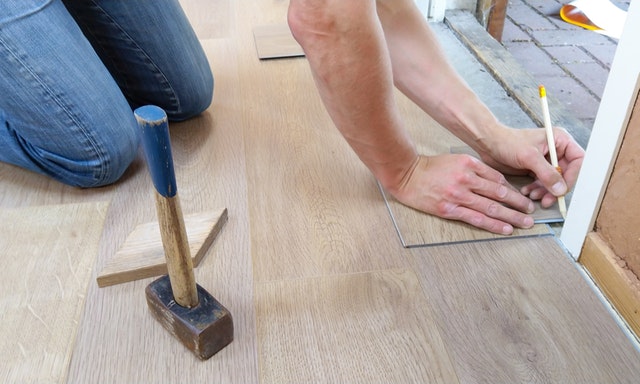Tips For Selling Your Home In The Winter
 Winter typically isn’t one of the busier home buying seasons – those seasons are reserved for spring and summer. But to think that you can’t sell your home at market value during the winter months is being naive. In fact, you can even use some of the characteristics that define the season to your advantage.
Winter typically isn’t one of the busier home buying seasons – those seasons are reserved for spring and summer. But to think that you can’t sell your home at market value during the winter months is being naive. In fact, you can even use some of the characteristics that define the season to your advantage.
For instance, because winter isn’t a hot selling season, there’s typically less inventory during this time of year. That said, if your home stands out in the listings, you have a better chance of getting on that coveted “short list” of buyers.
Here’s a look at some tips on how to do it:
Make Your Home Look Inviting
This is essential for selling your home at any period of the year, but it’s perhaps most important during the winter months. That’s because colder temperatures and shorter days have the tendency to make a property look a little dreary from the outside.
There are a few ways to enhance your home’s curb appeal during the winter months:
- Exterior lights: Shorter days mean less daylight, so make sure your home is well-lit so that buyers can see all of its features in periods of low light.
- Easy to navigate: Always ensure that your driveway and any walking paths are clear. This makes it easier for potential buyers to safely access the home and more closely observe the condition of the driveway, sidewalks, etc.
- Decorate it appropriately: Don’t overdo it, but some seasonal decorations can add a nice touch.
Turn Up The Heat
Ideally, you want would-be buyers to walk in from the cold into a warm, cozy environment. So crank up the thermostat, make a fire in your home’s fireplaces (if applicable) and brighten any dark areas of the home. This helps create a comfortable interior environment as well as show off some of your home’s amenities.
Think Spring And Summer
As you know, your home is bound to look different during the summer months than it will during the winter. Hence, we’d encourage you to make sure that this is noted in your listings. Include exterior photos of your home during the warm weather months so would-be buyers can see the green grass, flowers in bloom and leaves on the trees.
Sometimes, envisioning how a home that is being shown in the winter will look at other times of the year can be difficult. Don’t waste the opportunity to include a few photos of your home at other times of the year.
Don’t be nervous about selling your home in the winter – just know how to showcase it to capture buyer interest. The buyers are out there in the winter, it’s just a matter of making your home stand out. Your trusted real estate agent is just the person to help you make sure your home is buyer-ready any time of the year!
And don’t forget to contact your trusted home mortgage professional for advice on financing options. You’re going to want to have a place to call home after you sell your current property!

 There are several things to do when you prepare to list your home for sale. One of the projects you’ll need to do is complete certain repairs. Your home should be in the best possible condition before your real estate agent shows it to potential buyers.
There are several things to do when you prepare to list your home for sale. One of the projects you’ll need to do is complete certain repairs. Your home should be in the best possible condition before your real estate agent shows it to potential buyers. There comes a time in every young homeowner’s life when they need a bigger house. When you buy a starter home, it’s unlikely that will be your forever home. But how do you know when it’s time to spend the time and effort to upgrade to a larger home?
There comes a time in every young homeowner’s life when they need a bigger house. When you buy a starter home, it’s unlikely that will be your forever home. But how do you know when it’s time to spend the time and effort to upgrade to a larger home?